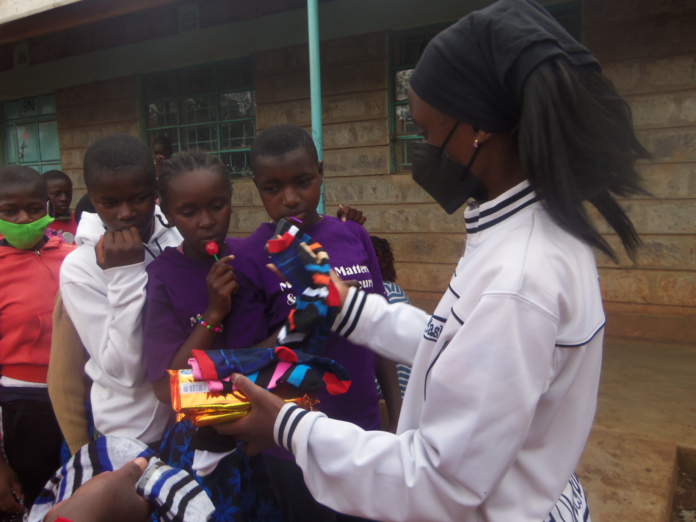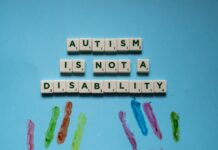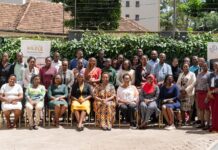By Sharon Kiburi
Nairobi, Kenya: Tanya Maringo is a lady on a mission to offer psychosocial support to girls in her community. Having studied psychology at Daystar University, she felt empowered to address the rising number of teen pregnancies she was seeing around her community.
The dreams that seemed shattered and broken as the girls stared at made Maringo crawl within her heart. A gap she saw in the community that would have led to the loss of many dreams by the young girls. Here she sought to mitigate it through life skills and community group support.
When the Global pandemic hit in March 2020, it exposed the already existing economic disparities, strained education, and medical infrastructures. This notwithstanding was affecting the young girls that Maringo saw in Gataka area in the leafy suburbs of the city.
Here, Gataka residents mostly work as domestic support for the families living in the leafy Karen suburbs. Most parents and guardians would often leave their children early in the wee hours and come back late as the schools were closed due to the COVID-19 protocols.
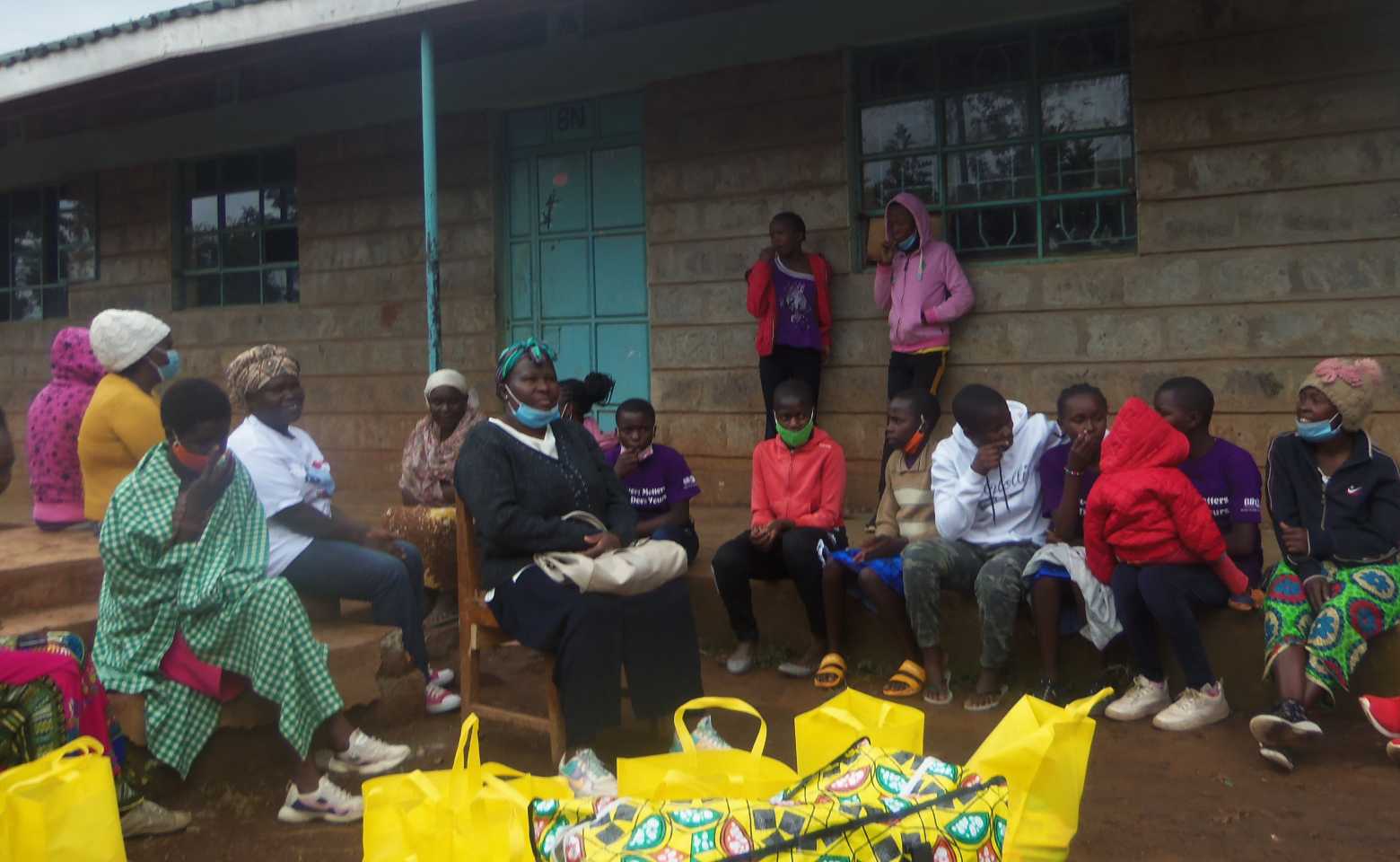
“During the onset of COVID-19, the government shut all schools that were a haven for teenage girls from acts of violence in the community and provided access to meals. Quite often, parents in the Gataka neighborhood spend time working to put food on the table, which means the teenagers are always left without adult supervision. This puts their lives at risk of being assaulted or defiled,” says Maringo, the founder of Blink International.
The situation, in turn, led to many girls seeking reprieve from various young men who were willing to listen to them and give them a few handouts, unbeknown to them it was a trap as many girls were abandoned after they were found pregnant.
Parents during the pandemic were equally not helpful as many were going through job losses and looking at ways to survive and fend for their families.
During interactions with the young girls, she discovered that some friends and some family members had isolated the teenagers. Others were left to bear their own burdens.
“Some even confessed to having thought of committing suicide. They were literarily affected mentally. They needed support, yet there was no one to help them,” she adds.
The Life Skills Initiative that was founded by Maringo offered support to young girls in areas of mental health, life skills, self-awareness, and self-esteem. They also empower the young girls on how to handle emotions, relationships, finances, and budgeting skills. Their objective is to increase confidence among the girls and to share information with trusted family members.
The impact of the organization comes when the number of mental health and substance abuse is on the rise in Kenya. Pundits estimate that one in every ten Kenyans suffers from a mental health disorder.
“We, through this program, aim to equip teenagers with abilities/capacity to solve life’s predicaments they will encounter and to inspire them to pursue their goals,” says Maringo.
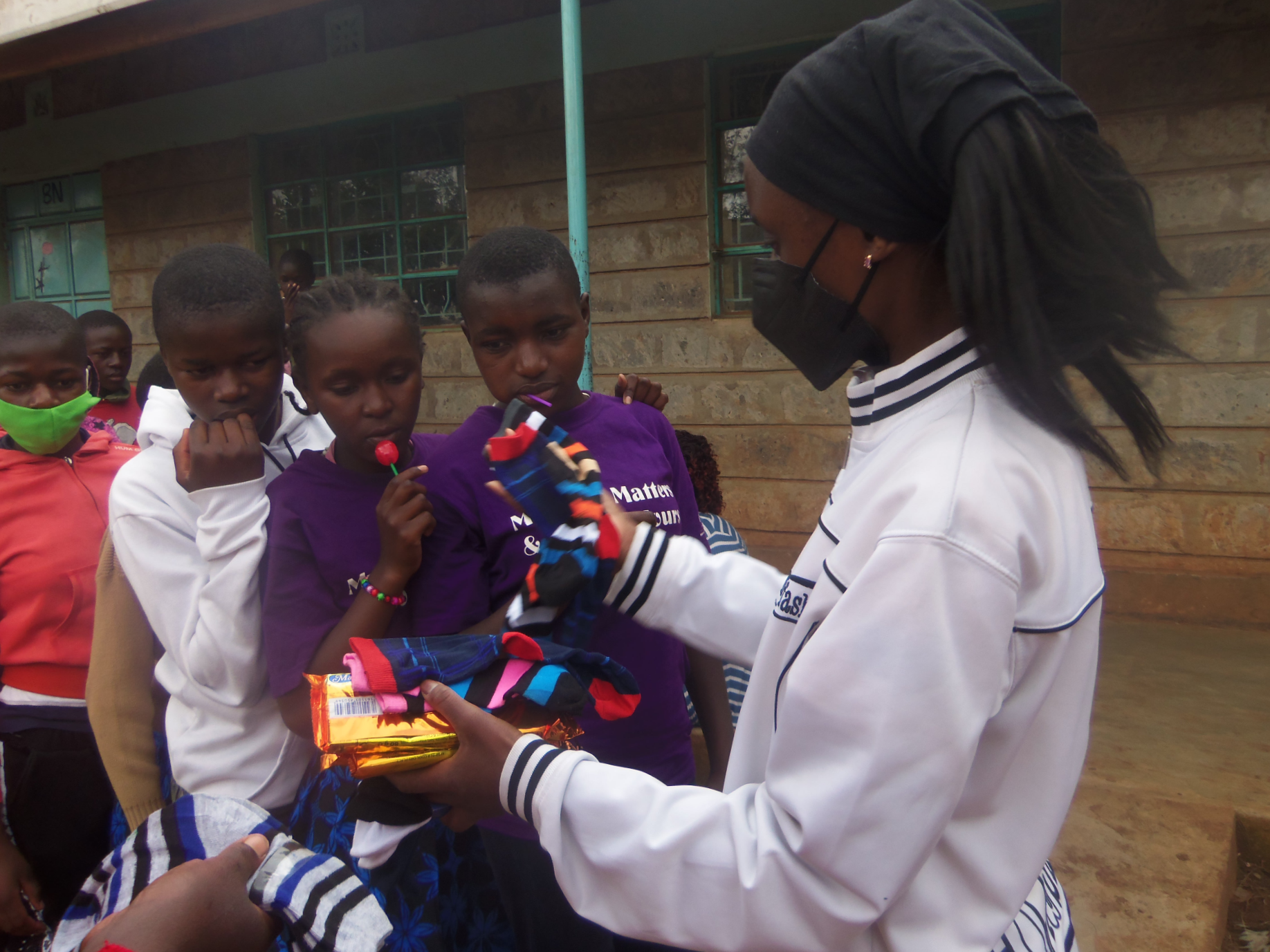
The Life Skills program has had 25 Teenage beneficiaries who have undergone the training since last year till now.
The Kenya National Bureau of Statistics (KNBS) reported 483 suicide cases recorded over three months in 2020 while in 2019 the self-immolation cases reported were 196 cases. This only represents the dire need for more community-based awareness and well-structured support systems, especially in areas with limited access to mental health services.
There’s a need to train and equip community members and healthy volunteers at the grassroots level with basic first aid skills and will lead to early identification of severe mental health challenges and suicidal ideations. At Life Skills, they want to not only train but also link the community with service providers as a way to create awareness of mental health.
“In light of this, my work in the community as a trained mental health service provider means that I can contribute towards increasing access to quality mental health services to vulnerable youth through the Mental Health Policy Plan 2021-2025. In addition to this, I seek to strengthen mental health systems through capacity building. As a result of the covid-19 pandemic, there has been an increased demand for psychosocial support” says Maringo.
“think we can all agree that every day we face challenges; hence there is a necessity to learn how to cope with them, said Mary Wairimu, a beneficiary of the life skills program.
Wairimu adds that poverty, a gap that the covid-19 pandemic has widened, has seen most teenagers go without basic needs and lack sanitary towels for the girls. “Lack has caused some of my friends to make wrong choices to survive; for instance, girls can be pulled into prostitution to buy sanitary pads and food,” she says.
In her pledge to call to action, Wairimu urges parents to notice their children when life hurdles are affecting them. “It is almost effortless for someone to lack interest in education when the home environment does not provide a support system for them to desire education. Boys can be swayed into crime while girls are prone to early marriages and promiscuity,” says Wairimu.
“I want to impact the youth to have the courage to dream, pursue their goals and have holistic life,” says Tanya adding that they also provide foodstuffs to the community
Maringo is seen to be seamlessly interacting with the teenagers getting into conversions with them, creating jokes and peals of laughter. “It is vital to not only speak with the teenager but ensure they feel heard. Especially as we develop programs for them on life skills, we incorporate answers to questions they are most curious about,” Said Maringo.

